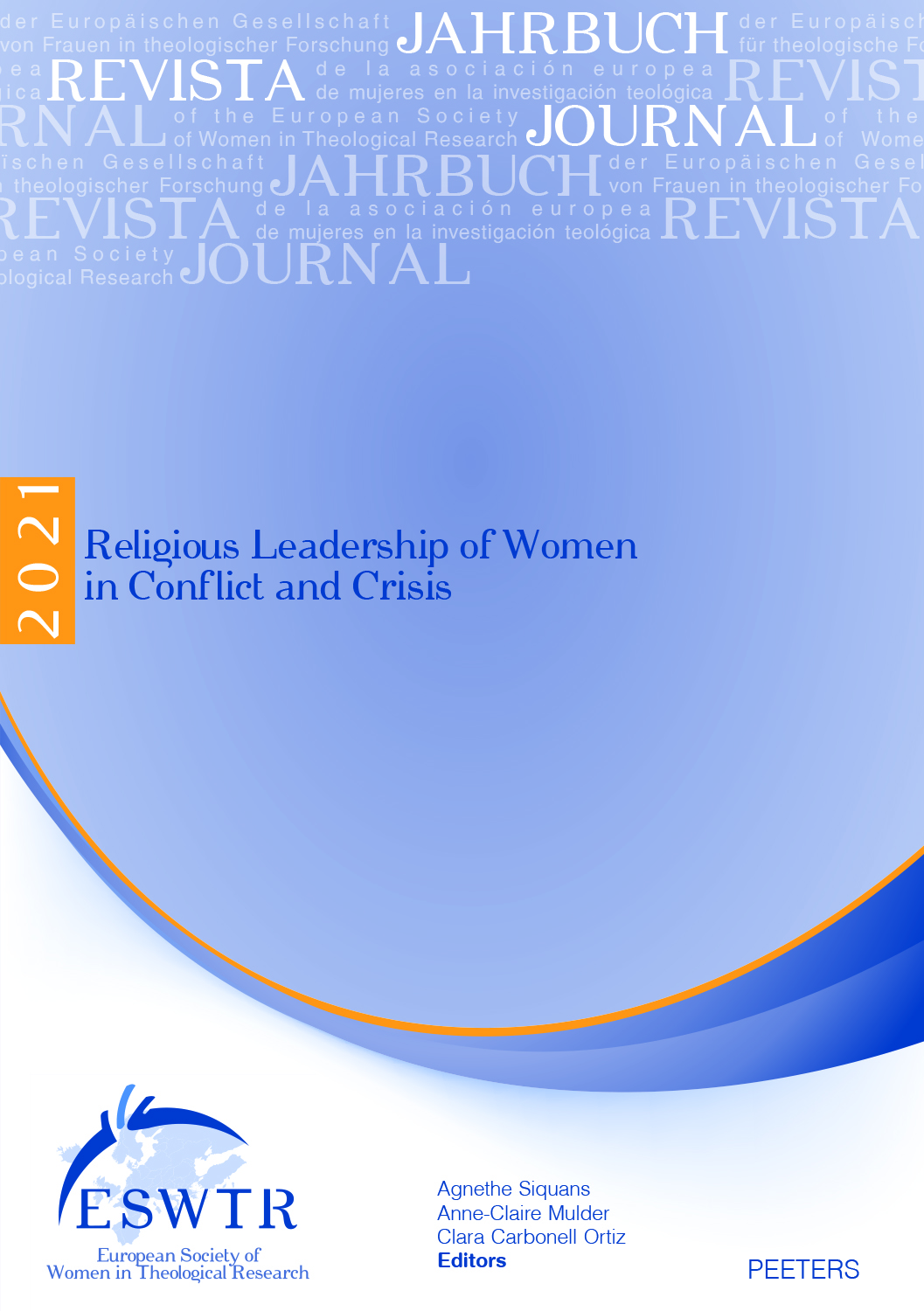 previous article in this issue previous article in this issue | next article in this issue  |

Preview first page |
Document Details : Title: Erfahrungsbericht aus dem Ersten Interreligiösen Feministischen Lehr- und Lernhaus Author(s): HERWEG, Rachel , MATTHIAE, Gisela , MÜLLER, Rabeya Journal: Journal of the European Society of Women in Theological Research Volume: 17 Date: 2009 Pages: 135-144 DOI: 10.2143/ESWTR.17.0.2042664 Abstract : This essay reports on the first 'feminist interreligious house of teaching and learning' that took place in Germany. Three feminist theologians from the three Abrahamic religions (Judaism: Rachel Herweg; Islam: Rabeya Müller and Christianity: Gisela Matthiae) planned this course of seven modules for participants from all three communities. Each module ((1) faith confessions, (2) God and human, (3) scripture, (4) forms of religious expression, (5) festival and rituals; (6) ethics; and (7) practice internships) was intended to convey basic information about each religious tradition along with feminist reinterpretations and allow participants to engage in dialogue. Participants applied their newly acquired knowledge by independently developing and implementing local interreligious projects. In conclusion, the authors are confident that their model succeeded in broadening the knowledge base of participants and creating lasting relationships of trust. En este artículo se presenta la primera 'Casa feminista interreligiosa de enseñanza y aprendizaje' que tuvo lugar en Alemania. Fue planeada para participantes de las tres comunidades religiosas por tres teólogas feministas de las tres religiones abrahámicas (judía: Rachel Herweg; islámica: Rabeya Müller; cristiana: Gisela Matthiae), quienes diseñaron el curso, que consta de siete módulos. Cada uno de ellos ((1) confesión de fe; (2) Dios y el hombre; (3) escrituras; (4) formas de expresión religiosa; (5) fiestas – festividades – rituales; (6) bioética; (7) coloquio final sobre los proyectos de práctica) transmitió informaciones básicas sobre las distintas tradiciones religiosas junto con nuevas interpretaciones feministas, para hacer posible el diálogo entre las participantes. Al desarrollar y llevar a cabo proyectos interreligiosos propios en el lugar mismo fue posible poner en práctica directamente lo que se había aprendido. Las autoras están convencidas básicamente que con ayuda de este modelo lograron divulgar y afianzar conocimientos fundamentales de las participantes y crear relaciones de confianza duraderas. |
 |


